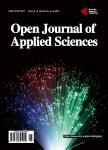Farmers’ Knowledge of Potato Viruses and Management Strategies in the Western Highlands of Cameroon
Farmers’ Knowledge of Potato Viruses and Management Strategies in the Western Highlands of Cameroon作者机构:Research Unit of Applied Botany University of Dschang Dschang Cameroon Julius Kuehn Institute Institute of Epidemiology and Pathogen Diagnostics Braunschweig Germany Research Unit of Applied Biology and Ecology University of Dschang Dschang Cameroon
出 版 物:《Open Journal of Applied Sciences》 (应用科学(英文))
年 卷 期:2021年第11卷第7期
页 面:818-831页
学科分类:120301[管理学-农业经济管理] 12[管理学] 1203[管理学-农林经济管理]
主 题:Farmers Knowledge Virus Control Potato Cameroon
摘 要:Potato (Solanum tuberosum L.), important staple food and a source of income to small-scale farmers, is mostly cultivated in Cameroon in the Western Highlands. Production constraints are exerted on this crop by many pathogens including viruses responsible for considerable yield losses. This study aimed at assessing the perception of farmers on the virus diseases that can affect potatoes, and to identify the control methods adopted against them. A semi-structured survey was carried out among 230 farmers in 24 villages of the Western Highlands zone of Cameroon. Out of these farmers, 80.87% had never heard of potato viruses. Those having pre-knowledge about potato viruses were 19.13%. Among the latter, 16.52% had heard of potato viruses and transmission mode during capacity building workshops while 2.61% didn’t know about the means of transmission. Insect control is essentially chemical (100%). However, few farmers use biological methods such as intercropping (7.39%) and application of plant extracts (4.78%) to control insects. Twelve plant species, belonging to nine families, were mentioned for insect control. In addition to plants, farmers also use wood ash and rabbit urine for insect control. These results show the knowledge gap possessed by farmers with respect to potato viruses and their transmission mode. It is thus speculated that this spans to other crops in Cameroon settings. This finding can serve as a base and a working document for policymaking to ameliorate teaching, research and devilment related to plant viruses for better sustainable food production.



